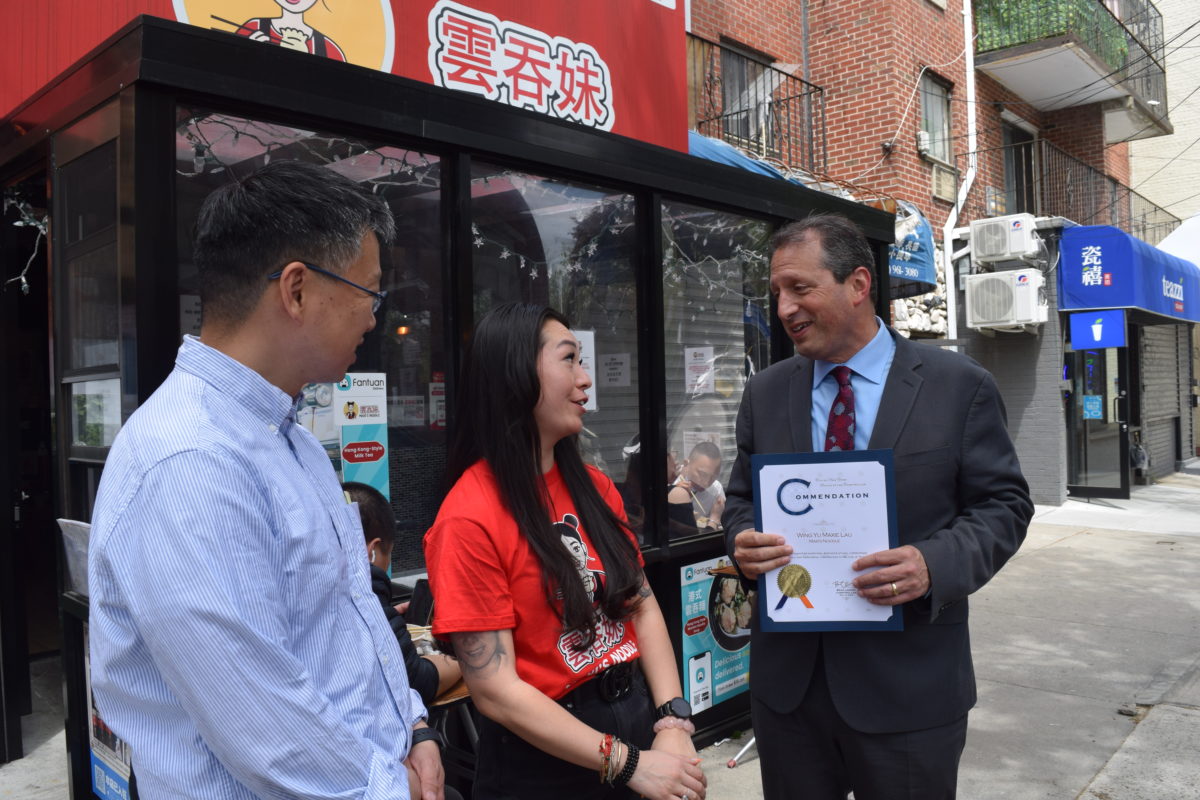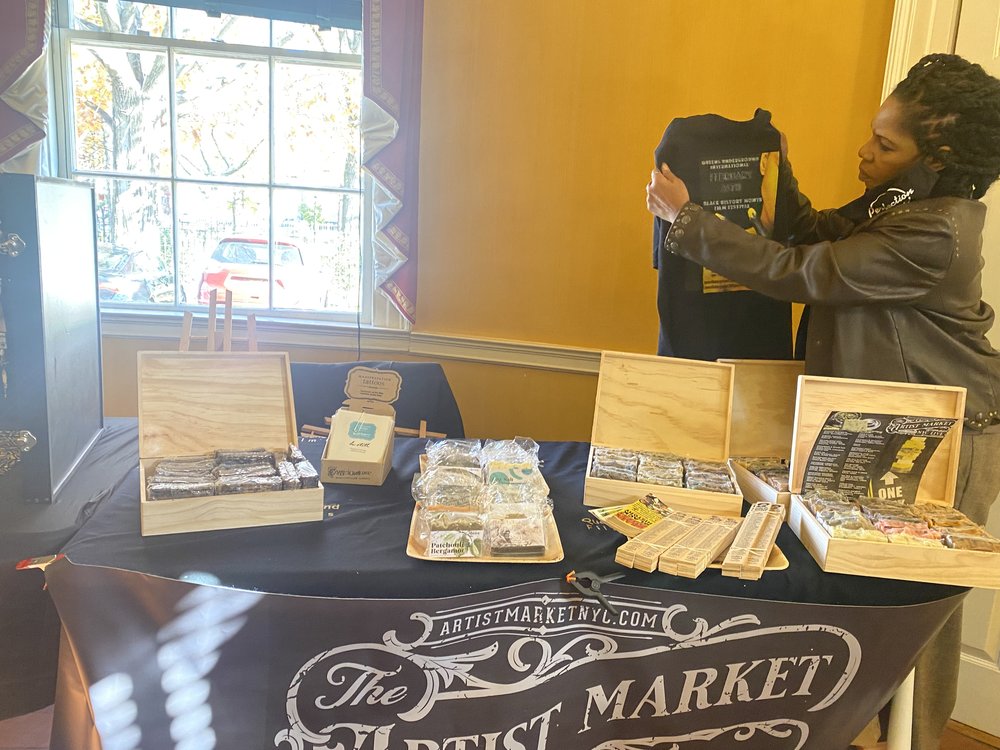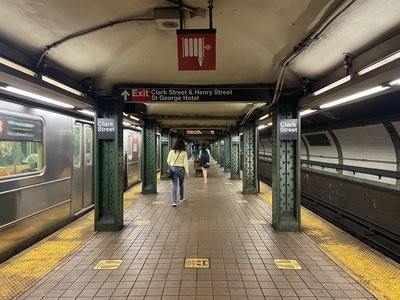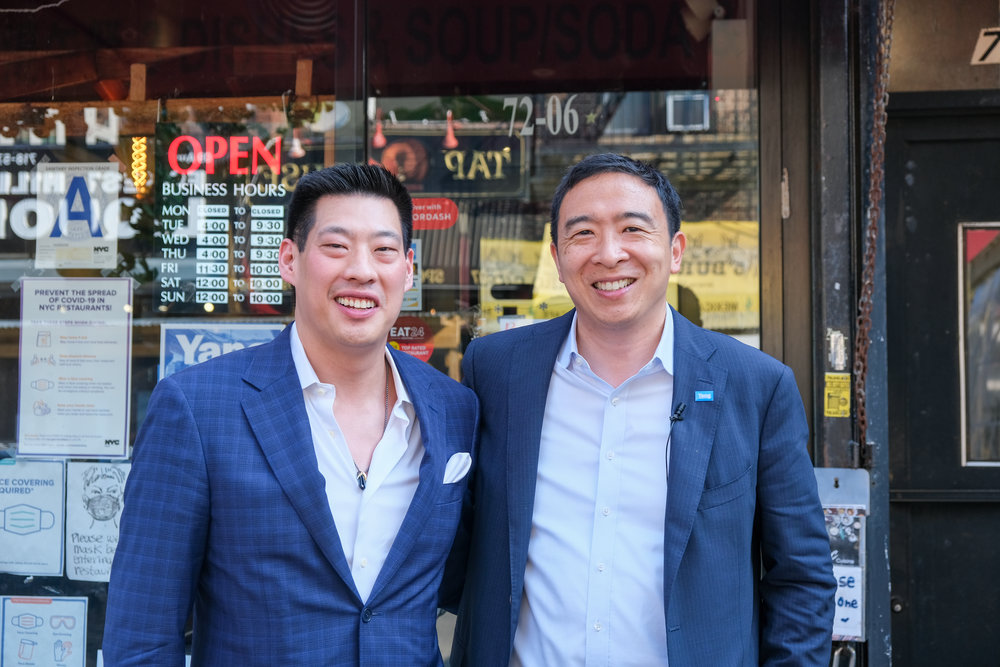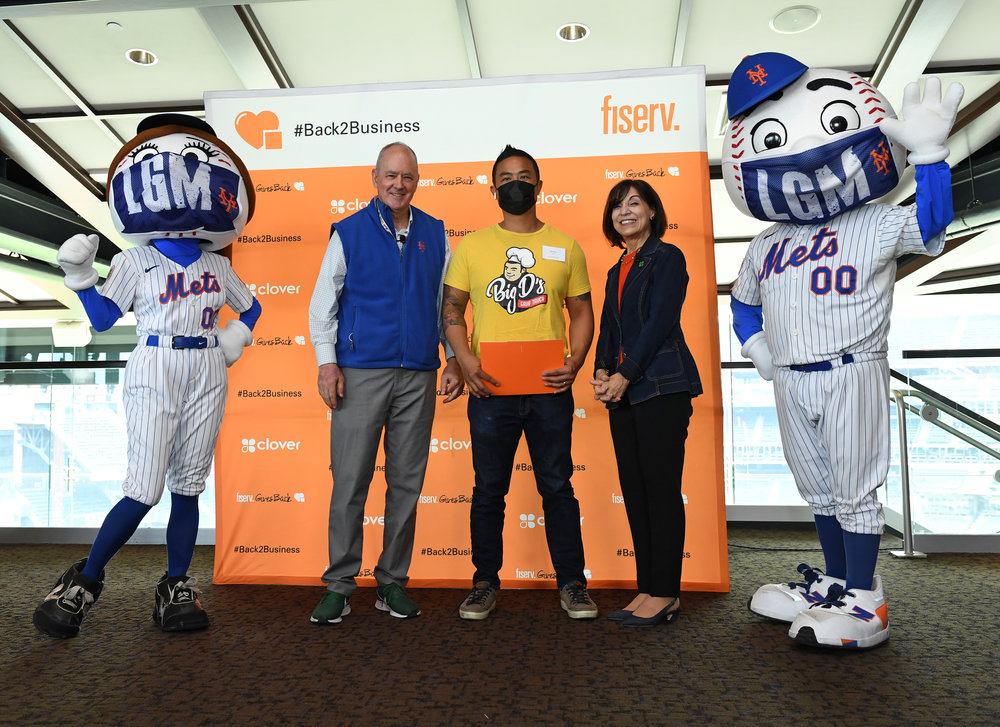NYC Comptroller visits Flushing businesses
Lander connects local business owners to city resources
As part of Asian American and Pacific Islander Heritage Month, New York City Comptroller Brad Lander ventured out into the streets of downtown Flushing last week to visit with Asian-owned small businesses.

Lander met with Flushing BID Director Dian Yu to speak with businesses in Downtown Flushing.
Dian Yu, executive director of Flushing’s Business Improvement District, met with Lander, intent on engaging in dialogue with entrepreneurs, learning more about their day-to-day lives, hearing their concerns, and connecting them with the appropriate city resources to best meet their needs.
“Asian American small businesses are such an important part of New York City. Many of them had a hard time during the pandemic; from the very beginning, they were some of the first businesses that were hit,” Lander said.
“But if we’re going to have the recovery that brings the city back and brings people opportunities to start businesses and get them jobs to thrive in New York City, it’s going to run through businesses like this.”
Lander’s first stop was to meet with Robert Cheng, the owner of Golden Shopping Mall on Main Street.
The mall was forced to shut down as the result of a fire, but Cheng renovated his property and brought in new tenants.
Cheng’s chief complaint was the fact that a few of his tenants could not open up their businesses due to delays in getting permits approved and securing fire inspections.
“We have to open,” Cheng said. “My tenant is frustrated.”
“Everyone is ready to go and we’re just waiting,” he continued. “Once the inspection is done, they can finalize and open, because nobody wants to dump money in here to sit here for months.”

Lander supported the various businesses he visited, including Tong Ren Tang, a Chinese herbal shop.
In response, Lander called Laura Kavanagh, the FDNY fire commissioner. She acknowledged that the department is understaffed and facing time-related issues, and said that a multi-point plan to expedite the process has been brought to the attention of Mayor Eric Adams.
“The more that we can tell businesses that we’re hearing them and we’re working on this, the better for everyone,” Kavanagh said. “We want to be a part of the city’s recovery,” she continued. “So even though we’re underwater as many people are, we think the city’s recovery is as much our responsibility as anyone else’s.”
In addition to addressing the needs of businesses in Flushing, Lander also paid visits to business owners who gave back to the community during the height of the pandemic.

Maxi Lau of Maxi’s Noodle was presented with a commendation from Lander for her community service.
He presented Maxi Lau, owner of Maxi’s Noodle on 38th Avenue, and Young Jin Gee, who owns Korean beauty store Aritaum on Union Street, with commendations for their efforts.
Lau opened up her business mid-pandemic, and despite just getting started, she and her father visited local hospitals each week to donate authentic, handmade wontons to healthcare workers.
Gee, who’s been in business for over 20 years, committed herself to handing out PPE to other businesses on Union Street.
“It’s really encouraging. What we need to bring New York City back is the energy of entrepreneurs like the ones we see in Flushing today,” Lander said.
“We have to think about what the city can do to help. There’s so much entrepreneurial creativity, and in some ways it’s just the city getting out of people’s way.”
On the last stop of the tour, Lander spoke with John Park, executive director of Minkwon Center for Community Action, a nonprofit organization dedicated to serving, educating, and organizing low-income Korean, Asian, and immigrant communities since 1984.
They discussed a myriad of topics including the organization’s Hate Free Zone — an initiative to create safe spaces for Asian Americans in downtown Flushing — given the rising number of hate crimes occurring in that community.
“We didn’t think we were really moving the needle with the typical tools: refining or clarifying hate crime legislation, which is important. Even if you have that kind of legislation, and we support it, it’s not a deterrent,” Park said.

Lander met with John Park executive director of Minkwon Center for Community Action to discuss issues impacting the Asian community in Flushing.
“Our approach is that moving the culture is better than moving policy, because what we do recognize is you cannot cannot legislate racism out, or we cannot police racism,” he continued. “These are not the right tools for the problems we’re trying to analyze. The right solution is actually a community-driven initiative.”
Park also brought up the issue of a lack of language accessibility within city resources for those who do not speak English.
Lander said that his office is launching the next phase in its language accessibility work, and trying to figure out how it can partner with other organizations and media to open up the conversation for those who need resources.
“Finding out how the city can help people, where the city is causing problems, or where the city could get out of people’s way is really important,” he said.
“There’s nothing like coming out and meeting people on the ground and hearing what’s working and also what we have to fix — so we can support folks like you and other entrepreneurs that are making Flushing and our whole city the place we love.”




